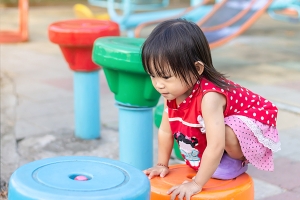
Is intelligence something you’re born with or something that develops? Is failure an opportunity to learn and grow, or something that impedes success? How a parent answers these questions greatly impacts children. Their responses have everything to do with how kids see themselves—how they perceive the ability to improve and learn from mistakes. Over the past decade, educators and psychologists have been researching the effects of words and actions on a child’s problem-solving skills and resilience. The ideology (called “growth mindset”) is very popular with educators. Here’s what you need to know.
What is Growth Mindset?
Carol Dweck, Stanford University psychologist and author of Mindset: The New Psychology of Success, found during her study of children that the most successful kids were those who were open to new approaches to problems and willing to continue learning in the face of failure. She labeled this resilience and willingness to overcome obstacles “Growth Mindset.”
Growth Mindset vs. Fixed Mindset
A fixed mindset is based on the belief that one’s abilities and talents are inherent or natural. Like many of my generation, I grew up with a fixed mindset. “I’m not a math person” runs through my head each time I try to calculate tip at a restaurant. Why is this a problem? Those who adopt a fixed mindset are more likely to fear failure, give up and create labels for themselves.
The idea behind growth mindset is that with practice, the right strategies, and a willingness to learn from mistakes, people can grow to become more intelligent. By adopting a growth mindset, kids see mistakes more as a challenge and don't mind failure because they realize it’s a path to improvement when they persevere. When parents focus more on a child’s hard work, instead of how smart she is, it fosters growth. Failure doesn’t disprove that a child is smart, athletic or artistic. It simply indicates she needs to try a different approach.
The Power of Yet
Dweck’s research began when she observed a Chicago school district that gave the grade “not yet” instead of a failing grade. Teachers are using the concept to transform a student’s feeling of “I’ll never get this…it’s too hard” to “I don’t understand this yet.” It encourages students to try new strategies until they get it right. The power of “yet” creates persistence in children.
“You can be extremely successful and smart, and there is always room for growth,” Jackson says. “It makes learning fun because it is like a quest—you never have to reach an ending.” It also reduces anxiety in kids because they no longer fear having the wrong answer.
“The first year I tried this, I worked with a group of students from low socio-economic [backgrounds] who faced issues that got in the way of learning,” says Jackson. “They started to feel like they had some control over learning. There was a willingness to try. The mood became lighter and kids started using words like ‘conquer’, ‘fight’, ‘struggle’ and ‘victorious.’ It was really neat to see.”
Big Kids
At Valley Middle School in Carlsbad, teachers and administrators work together to develop a school-wide mission of growth mindset, according to Counselor Melony Schroh. The concept is especially important for middle school students. Toddlers often start off unstoppable and headstrong in their determination, but by the time they reach middle school, many struggle with academic and social demands and adopt lower standards for themselves. Dweck’s studies show that junior high students with a fixed mindset are more likely to cheat than feel dumb by making mistakes or failing. Many middle schools provide opportunities for kids to discuss mistakes and develop strategies for handling failure.
How Parents Can Encourage Growth Mindset
Dweck advises parents to praise kids in effective ways. Instead of telling a child “You’re so smart”, be more specific. Praising effort and hard work makes kids work harder and want to grow. Praising intelligence just makes kids want to get the right answer. Dweck emphasizes the importance of praising a child’s process, effort, perseverance and improvement to help grow confidence and resilience. Be sincere; praise growth and good habits.
Jackson tells her students, “You can always improve if you work hard. You may not be the best, but you will be your best if you work hard and keep at it.”
Local Teachers Share How Growth Mindset is Embraced in their Classrooms
“When we go over the students' work, I’m not focused on the right or wrong answer. We look at the process that led to the answer and if the answer is wrong, where the understanding broke down. Students become very good at finding their own mistakes and knowing the difference between a careless error and a breakdown in understanding. When you don't make mistakes, no learning is happening. I believe it is mistakes—and the analysis of those mistakes—that lead to success.” - Amy Jackson, fifth grade teacher, Green Elementary in San Carlos
“I use [youcubed math curriculum’s] Week of Inspirational Math lesson on making mistakes and the brain science that goes with it. Research shows that when you make a mistake, the neurons in your brain fire, which creates another pathway in your brain. When you work on fixing mistakes, yet another pathway, you physically grow your brain. All year we celebrate our mistakes and cheer that we’ve just grown our brains!”
- Tami Bromley, kindergarten teacher, Village Elementary in Coronado
More Resources
To learn more about supporting a growth mindset at home and school:
www.mindsetworks.com/parents
Big Life Journal incorporates articles for all ages:
https://biglifejournal.com/blogs/blog
Have little ones? Check out Sesame Street’s “Power of Yet” music video:
www.youtube.com/watch?v=XLeUvZvuvAs
___________
Cherie Gough is a former teacher and local freelance writer who loves to write about innovative people bringing positive change to our community.
____________















